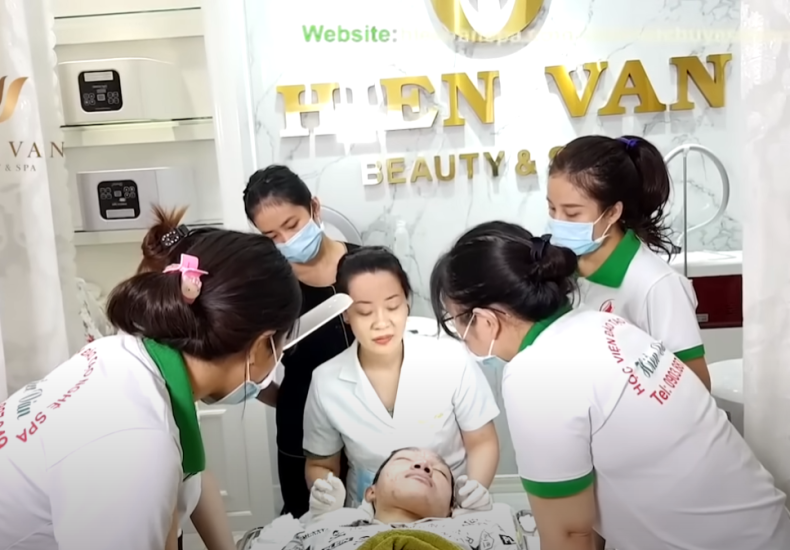
The most effective treatment for cystic acne and inflammatory
The most effective treatment for cystic acne and inflammatory
Please scroll down to watch the video.👇👇
The most effective treatment for cystic acne and inflammatory acne typically involves a combination of prescription medications, skincare routines, and sometimes lifestyle changes. Here’s a breakdown of the most proven treatments:
🔹 Medical Treatments
-
Oral Isotretinoin (Accutane)
-
Most effective long-term treatment for cystic acne
-
Reduces oil production, unclogs pores, and reduces inflammation
-
Requires monitoring for side effects (e.g., dryness, mood changes, liver function)
-
-
Oral Antibiotics (e.g., doxycycline, minocycline)
-
Reduce Propionibacterium acnes and inflammation
-
Often used short-term alongside topical treatments
-
-
Hormonal Therapy
-
For women: Oral contraceptives or spironolactone help balance hormones causing breakouts
-
Effective for hormonal or jawline acne
-
-
Topical Retinoids (e.g., tretinoin, adapalene)
-
Help prevent clogged pores
-
Improve skin turnover and texture
-
Often cause irritation initially, so start slowly
-
-
Topical Antibiotics (e.g., clindamycin)
-
Used with benzoyl peroxide to reduce resistance
-
Help control surface bacteria
-
-
Cortisone Injections
-
For large, painful cysts
-
Provide rapid relief in 24–72 hours
-
🔹 Over-the-Counter Options (For Mild to Moderate Cases)
-
Benzoyl Peroxide: Kills bacteria and reduces inflammation
-
Salicylic Acid: Exfoliates and unclogs pores
-
Adapalene (Differin): Retinoid available without prescription
🔹 Lifestyle and Skincare Tips
-
Use non-comedogenic (won’t clog pores) products
-
Avoid picking or squeezing cysts
-
Gentle cleansing twice daily
-
Maintain a consistent skincare routine
-
Manage stress and consider dietary triggers (e.g., dairy, high glycemic foods)
Treating cystic acne and inflammatory acne effectively requires a comprehensive approach, combining medical treatments with appropriate skincare. Here’s an in-depth overview based on current clinical guidelines and research:
🔹 Medical Treatments
1. Oral Isotretinoin (Accutane)
-
Usage: Prescribed for severe or treatment-resistant acne.
-
Mechanism: Reduces sebum production, prevents follicular plugging, and has anti-inflammatory properties.
-
Considerations: Requires monitoring due to potential side effects, including teratogenicity.
2. Oral Antibiotics
-
Common Choices: Doxycycline and minocycline.
-
Mechanism: Decrease Cutibacterium acnes colonization and reduce inflammation.
-
Guidelines: Recommended for moderate to severe inflammatory acne, often in combination with topical agents to prevent antibiotic resistance.
3. Hormonal Therapies (for females)
-
Options: Combined oral contraceptives and spironolactone.
-
Mechanism: Regulate hormonal fluctuations that can exacerbate acne.
-
Efficacy: Particularly beneficial for women with signs of androgen excess or hormonal acne patterns. Medscape
🔹 Topical Treatments
1. Topical Retinoids
-
Examples: Tretinoin, adapalene, tazarotene.
-
Mechanism: Normalize desquamation, prevent comedone formation, and have anti-inflammatory effects.
-
Usage: First-line for most acne types; may cause initial irritation. Merck ManualsJAAD
2. Benzoyl Peroxide
-
Mechanism: Bactericidal against C. acnes and has mild comedolytic properties.
-
Usage: Often combined with topical antibiotics to enhance efficacy and reduce resistance development. Wikipedia+2AAFP+2Mayo Clinic+2AAFP
3. Topical Antibiotics
-
Examples: Clindamycin, erythromycin.
-
Mechanism: Reduce C. acnes and inflammation.
-
Guidelines: Should be used in combination with benzoyl peroxide to prevent resistance. NCBI+10Medscape+10Vogue+10AAFP
🔹 Additional Therapies
1. Corticosteroid Injections
-
Usage: For large, painful nodules or cysts to rapidly reduce inflammation.
-
Effectiveness: Can lead to significant improvement within 24–72 hours.
2. Procedural Interventions
-
Options: Laser therapy, chemical peels, and light-based treatments.
-
Considerations: May be beneficial for certain individuals, often as adjunctive treatments. Wiley Online Library
🔹 Skincare and Lifestyle Recommendations
-
Gentle Cleansing: Use non-comedogenic, mild cleansers twice daily.
-
Avoid Picking: Prevents scarring and further inflammation.
-
Sun Protection: Daily use of non-comedogenic sunscreen.
-
Dietary Considerations: Some evidence suggests high glycemic index foods and dairy may exacerbate acne in certain individuals.
For individuals in Phnom Penh, it’s advisable to consult a dermatologist to tailor a treatment plan suited to your specific needs. If you need assistance finding a local specialist or have further questions about any treatments mentioned, feel free to ask.
https://www.youtube.com/watch?v=2bb2kIVsZgs&t=4s
-
Leave a Reply